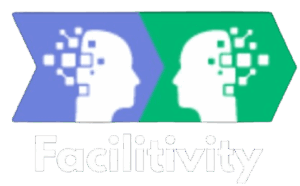Level 2 Program Classes Part 1
The Profession of Coaching – introduces the core concepts, structures, and standards that define coaching as a professional discipline. Participants gain an understanding of the ICF Core Competencies, the coaching mindset, and how coaching conversations are structured—from building rapport and co-creating session purpose to supporting insight, clarity, and follow-through.
The class also explores the creation of clear, mutual coaching agreements across individual, team, and organizational levels, and introduces the ICF Code of Ethics as a practical guide to maintaining professionalism and trust. Early practice opportunities help participants begin applying these concepts with confidence.
This class also includes multiple demonstrations of professional coaching by an instructor.
Leading Through Coaching Part 1 – reflects the central orientation of the program: leading through coaching—engaging others with curiosity, presence, and partnership rather than through direction or control. Coaching invites people to bring their full value to every challenge, fostering ownership, creativity, and alignment with shared goals.
Participants explore how coaching behaviors can shape leadership practice—distinguishing coaching from managing, fostering trust and psychological safety, encouraging and challenging others, and guiding discovery through powerful questions. The class also includes practices for co-creating vision, acknowledging and celebrating progress, and applying the principles and values of coaching at scale within teams and organizations.
Coaching Conversations: Goals and Structure – the foundational structure of a coaching conversation—how to begin with a clear per-session agreement, support the coachee in maintaining focus, and arrive at meaningful progress by the end. Participants explore how to partner with coachees to clarify what they want from the session, reorient when needed, and work with cues like vagueness or hesitancy to uncover deeper truths. They learn to shift from solving problems to supporting the person who has them, helping the coachee reconnect with their own motivations, priorities, and sense of forward momentum. Key practices include using intentional pauses, asking questions with clarity and impact, checking in on progress as a consistent thread, and helping coachees lock in learning that extends beyond the session.
Acting as a Mirror – focuses on helping coaches reflect the coachee’s experience in ways that promote insight, ownership, and forward movement. Participants develop core skills for reflecting without distortion, using approaches that preserve the coachee’s meaning and support self-awareness. Modules explore how to name shifts in tone, energy, or language clearly and respectfully, and how to share observations or intuitions without steering. Coaches also learn to stay grounded and open, honoring the coachee’s words and pacing while creating space for self-reflection and meaningful growth.
You As Coach 1 – offers a mix of topics that support your development as a coach. You’ll explore how to notice and redirect your instinct to do the coachee’s work, bring coaching into everyday interactions, navigate sensitive topics with care, and stay effective even when you feel out of your depth in the coachee’s context. Each module strengthens a key aspect of your coaching presence and mindset.
Coaching Conversation Focus Areas – Instructor-facilitated discussions on how to coach to the professional coaching competencies, each grounded in a specific focus area. These include rapport building, the coachee’s choice, coaching agreements, co-creating focus, exploring, observing, raising awareness, intuition, follow-through, and coachee growth. Sessions draw on participants’ real coaching experiences to raise collective awareness and spark insight. This supports deeper understanding and helps integrate the concepts into their coaching repertoire.
Practice 1 – a series of 10 structured coaching sessions with feedback and 2 Reverse Coaching sessions, all designed to build skill and awareness through progressive challenge. Each session includes specific objectives focused on applying key coaching competencies, such as asking questions that serve the coachee rather than the coach’s curiosity. The complexity increases over time, highlighting growth edges and common pitfalls. The goal isn’t evaluation, but insight—participants leave with a clearer sense of where they are, what’s next, and what support they need.
Observed Coaching 1 includes 5 observed coaching sessions in small groups of three, allowing each participant to coach, receive written feedback aligned with ICF competencies, and learn from peer sessions. Coaches work in real-time with a coachee while being observed by an instructor, who provides feedback focused on growth and clarity rather than assessment. The small group format ensures time for each participant to receive individualized feedback and engage in reflective discussion. Sessions are structured for learning, with an emphasis on practical integration of skills and heightened self-awareness. These sessions fulfill the ICF observed coaching requirement for those pursuing an ACC credential.
